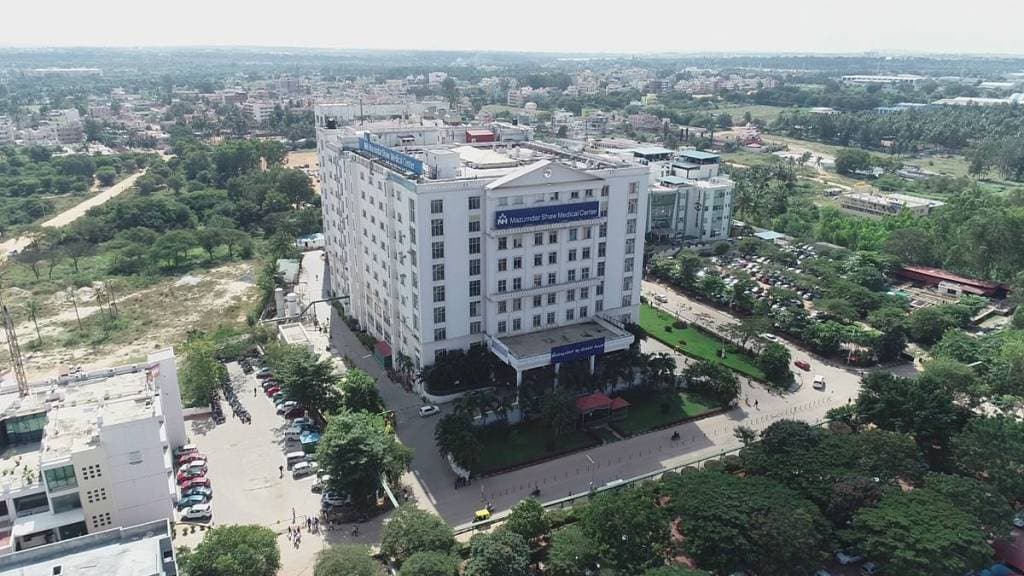In the corporate world the phrase ‘social impact’ conjures up a blend of commerce and conscience and lends a sense of purposefulness to business. It is therefore for a good reason why it probably sits at the centre of ESG – the three-letter standard on environmental, social and governance – that corporations swear by to stay planet-friendly and to ensure a better tomorrow.
In times when Business Responsibility and Sustainability Reporting (BRSR) is becoming a norm, leading corporations are busy evaluating a gamut of measures that need to be taken to showcase responsible conduct of business. The challenges are equally pressing, if not more, for hospitals or the healthcare providers. As entities that are energy intensive and high on water consumption, they also have to deal with disposal of bio-waste generated each day.
We reached out to Sandhya J, the Group Chief Financial Officer at Narayana Health, a leading healthcare chain, on the priorities for a healthcare provider that prides itself in staying conscious of the need to provide access to healthcare and on efforts to make it affordable. Narayana, like most others, she says, is “also chasing targets on renewable energy, waste management, and water conservation” but then, it has “indexed its ESG journey towards areas that the organisation values closely – social impact and digital innovation for those at the bottom of the pyramid.”
On social impact, Narayana Health, she says, has been a pioneer in making health care accessible and affordable to all. “While we continue to provide healthcare for all, we are particularly focussed on the largely underserved areas of healthcare which also happen to be those that especially impact the financially challenged. We have therefore focussed on improving access to paediatric cardiac care and bone marrow transplants (BMTs) for children.” Narayana Health, she says, “performs the largest number of paediatric cardiac surgeries in the country, at over 6000 surgeries per year, it is roughly 15 per cent of the total surgeries performed in India.”
In much the same fashion, its approach is also towards paediatric bone marrow transplant. Narayana Health, Sandhya says, “has the largest paediatric bone marrow transplant program in the country (at over 2500 BMTs till date) and manages one of the world’s largest BMT facility in its Bangalore Health City campus. Annually 2500-3000 BMTs are done in India.” To her, “the significant aspect to call out here is that many of these patients come from socio-economically weaker backgrounds and Narayana Health performs these with significant subsidies ranging from 10 per cent to 100 per cent.”
Other than these aspects on providing access, she says, the hospital chain is also pursuing efforts to build talent. “To deal with the problem of significant shortage of specialist medical talent in the country, Narayana Health runs the largest hospital-based doctoral academic programs (such as DNB, DrNB, MEM). These are aimed at creating a large pool of specialist talent to meet the ever-growing health care needs of the country,” she says. As of FY23, Narayana Health, Sandhya says, “has till now trained 2500 doctors through programs with many of them currently working across the country and even abroad.”
Adding digital depth has been another priority at Narayana, she says. “We were the first hospital chain to embrace healthcare delivered via satellite. Narayana Health set up a national video consultation system that allowed patients from rural areas to access specialists in the city.”
In a bid to build on this, she says, the hospital chain has “invested in the development of Athma, a new-age hospital management and electronic medical record system.” Athma, she explains, is a hospital operating system designed to foster seamless communication and to ensure co-ordinated care, and to efficiently utilize resources via open source technologies.” Athma, she says, “is being offered across the country at very low cost via the cloud so that clinics, pharmacies and nursing homes in small towns do not need to struggle while trying to adapt to the digital era.”
As a part of its Environmental, Social, and Governance (ESG) charter, Narayana Health, Sandhya says, has embarked on a mission to significantly reduce paper consumption, an integral piece in its digital transformation journey. Through the automation of patient processes, internal communications, and digital patient reporting facilitated by Athma and the ‘NHCare’ Mobile App, Narayana Health, she says, “has successfully reduced paper consumption per patient from 11 pages in 2020 to just 5 pages in 2023. Their goal is to further halve this in the next two years, with the ultimate goal of eliminating paper entirely.” This endeavour, she says, extends beyond sustainability and enhances operational efficiency, builds transparency, ensures data retrievability, and, most importantly, is a step towards greater patient safety.
On the element of affordability, Narayana’s founder Dr Devi Prasad Shetty, told this writer recently that since “any lowering of costs in medical procedures will be at the cost of quality, the only option available to make healthcare affordable was an approach through affordable health insurance.” On its part, Narayana, he said, had applied for a licence to set up its medical insurance subsidiary ‘Narayana One Health’ with hopes that in few months from now it could get to make a difference with this foray. “In the next five years, India will become the first country in the world to dissociate healthcare from affluence and family wealth having little connect with access to quality healthcare with a large number of insurance players offering a range of products.” Time to wait and watch.


